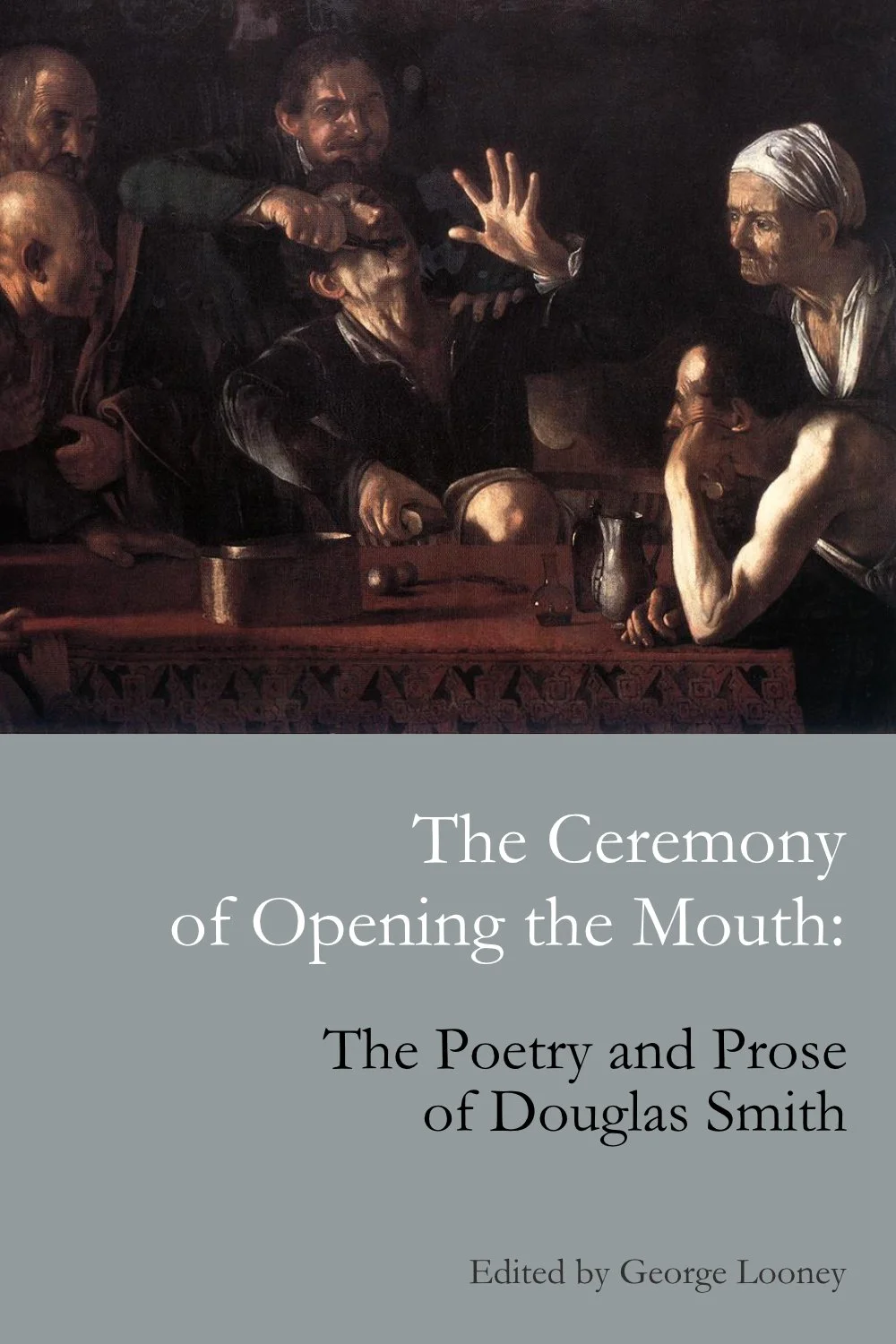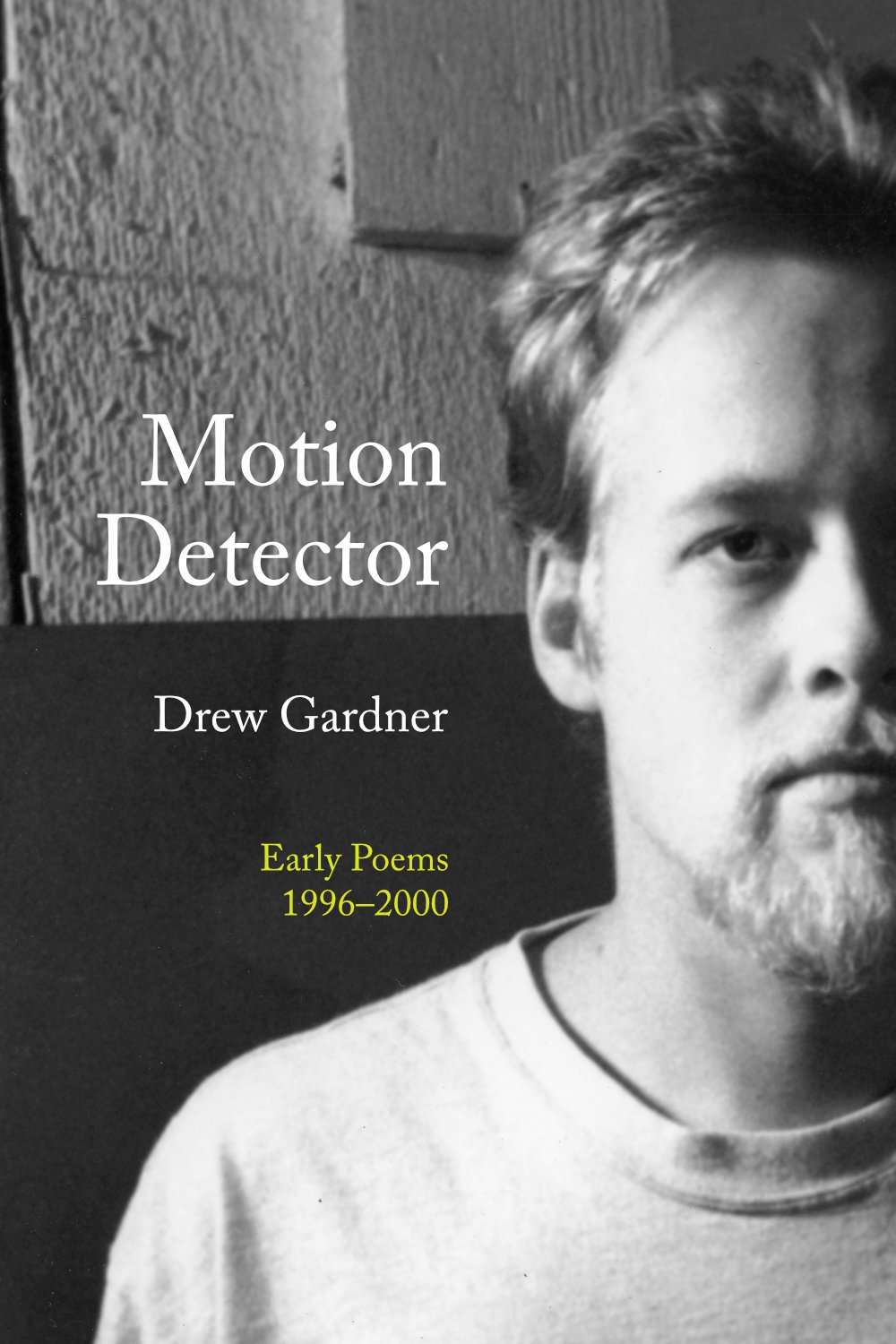In The Ceremony of Opening the Mouth, Douglas Smith achieves an alchemical transformation—a Rumpelstiltskin feat of spinning personal pain and loss into literary art. Narrative is imperative to his emotional reassembly. For Smith, Isis is actually a poet as she gathers the scattered bits of Osiris. Meditating on novelist William Goyen, Smith notes that gods can be killed but stories “can gather—and even mend—the shards of a shattered world” and thus allow entry into “an afflicted world and heal it.” Smith’s father, a dead god lost in childhood—a “wreck”—must be repeatedly explored and reconstituted until “the absence of father is / what I call father.” Familial characters are nameless, like in Samuel Beckett’s The Unnameable, and metaphors are startling. Mother, for example, is “a red flame that sweeps across a blue field” and later is “a burning locust.” Stories and poems often take on tones of grim and fabulist fairy tales involving roller coaster accidents (“she flew away from me”), unintended shootings, and hung grandfathers. In one memorable moment, a boy prays as he listens to his parents arguing. His prayer (“Now I lay me down to sleep”) is undercut by his father’s shouts (“It’s too late for that”). Clearly, for Smith, only the act of writing allows us to continue to cope with, and even transcend, our wrecked experiences because “the occasion of a poem can summon violence and contest it at once.” In the end, Smith resigns himself with “something akin” to Beckett’s concluding consolation: “I can’t go on,” Beckett wrote. I’ll go on.” I am so glad he did and left us this amazing account. You will be too.
—Terry Wright, author of Fractal Cut-Ups and Graphs
“A poet begins in silence and ends / in thirst” writes Douglas Smith. And later, “Nothing completes the body / more than collapse, / at last, / into something beyond.” Thus his voice comes back to us, in the prose and poetry of these collected works, where recurring themes of abandonment, loss, and the exquisite pain of being alive beg us to stay, to listen, to know this world—his world, yes, and a dark one, but ours now to consider in our own ongoing desire for mystery, for myth, for light.
—Paula J. Lambert, author of As If This Did Not Happen Every Day
The Ceremony of Opening the Mouth is a culmination of two elegant and profound story lines by two separate but, in many ways, inseparable authors. Douglas Smith’s poetry and prose is an elegy for (and love letter to) his lost father, who died at sea when Douglas was a young boy. Douglas approaches language as if meticulously crafting the perfect line or conjuring the perfect image will determine whether his father’s life (and his family’s loss) had profound—or no—meaning. The second is the story of a lifelong friend, George Looney, who pays tribute to this talented artist with a dark vision who, like his characters, left us way too soon.
—Sean Kelly, writer and friend
What are you reading? Four simple words prompting discourse and discovery, I beheld an unmatched generosity from Doug as teacher and mentor. So much we delighted in, so much that we embraced: Bishop and Borges and Beckett, Herbert Morris, Rilke, Geoffrey Hill, The Geography of the Imagination, Godspeed You! Black Emperor, The Form of Loss, “Final Soliloquy of the Interior Paramour.” Here, within The Ceremony of Opening the Mouth, find warmth, light, vitality.
—Nathan White, writer and musician
Author Biography
Douglas Smith was born in San Juan, Puerto Rico in 1959. When he died unexpectedly in 2018, he was working at Guilford College in his native North Carolina. Those who benefited from his mentorship at Guilford appreciated his unlimited capacity for patience and compassion. His love for education, art, and literature touched so many of his students and colleagues everywhere he taught. During his years at Guilford, he founded a reading series to bring writers from across the country to the college, created and managed annual undergraduate writing awards, and even regularly helped visual artists craft their personal statements for their capstone shows, and so he is remembered as someone who was always there to help others express themselves. And Douglas was a voracious reader, and, of course, a writer. This collection gathers together his best published and unpublished works that his friend (and editor of this book) George Looney and others could find. It includes fiction, poetry, and literary nonfiction. Work in it was first published in various literary journals, as well as in his previous collection Judgments, published by Pooka Press in 1984. He earned his MFA in fiction at Bowling Green State University, and taught at a number of colleges and universities, including Bowling Green State University, Iowa State University, and Elon College, in addition to his many years at Guilford College.
Editor Biography
George Looney’s recent books include The Visibility of Things Long Submerged, which won the BOA Editions Short Fiction Award, The Acrobatic Company of the Invisible, which won the Cider Press Review’s Editors’ Prize, The Worst May Be Over, which won the Elixir Press Fiction Award, and The Itinerate Circus: New and Selected Poems 1995-2020. He is the founder of the BFA in Creative Writing Program at Penn State Erie, editor-in-chief of the international literary journal Lake Effect, translation editor of Mid-American Review, and co-founder of the original Chautauqua Writers’ Festival.





